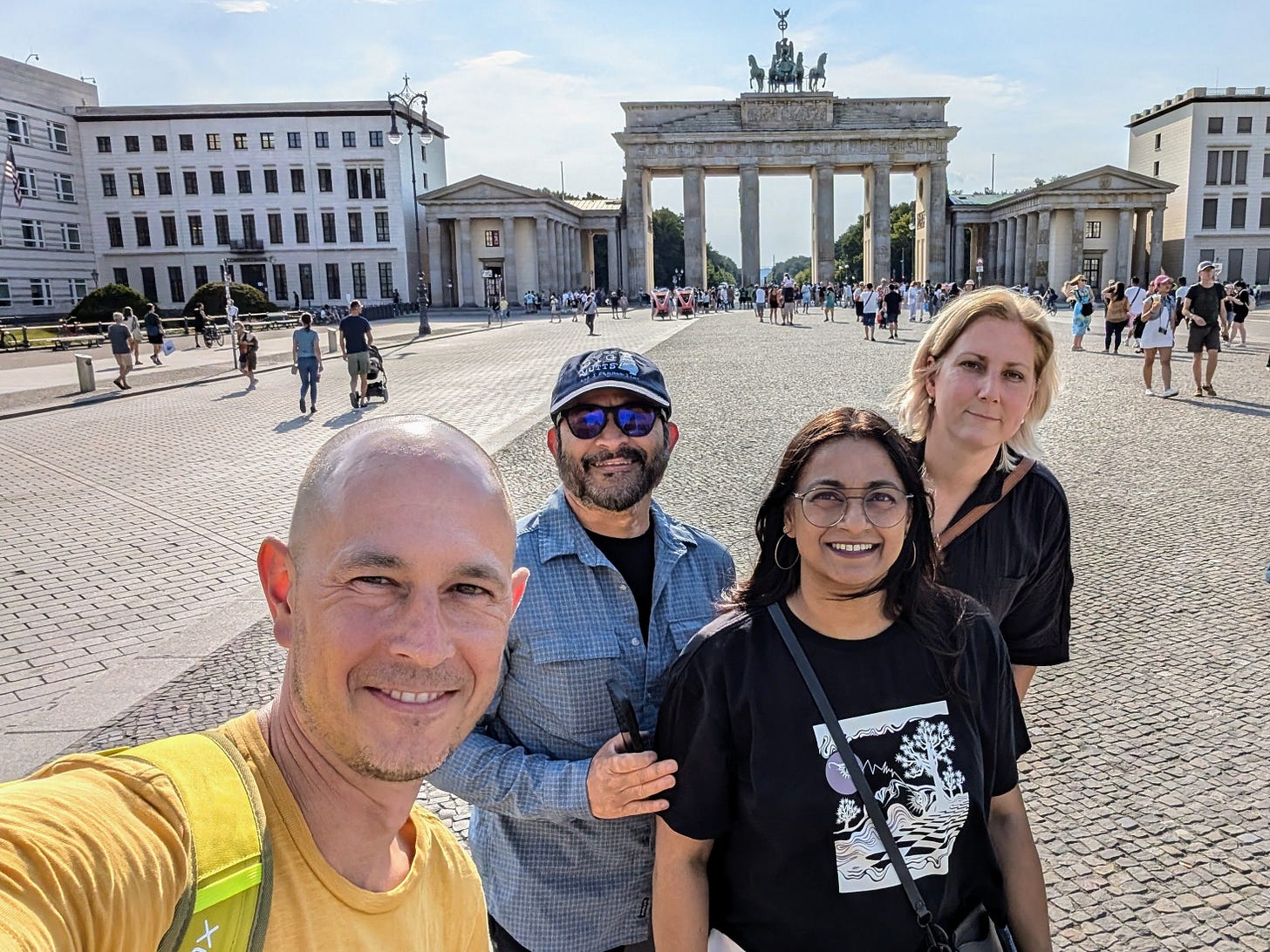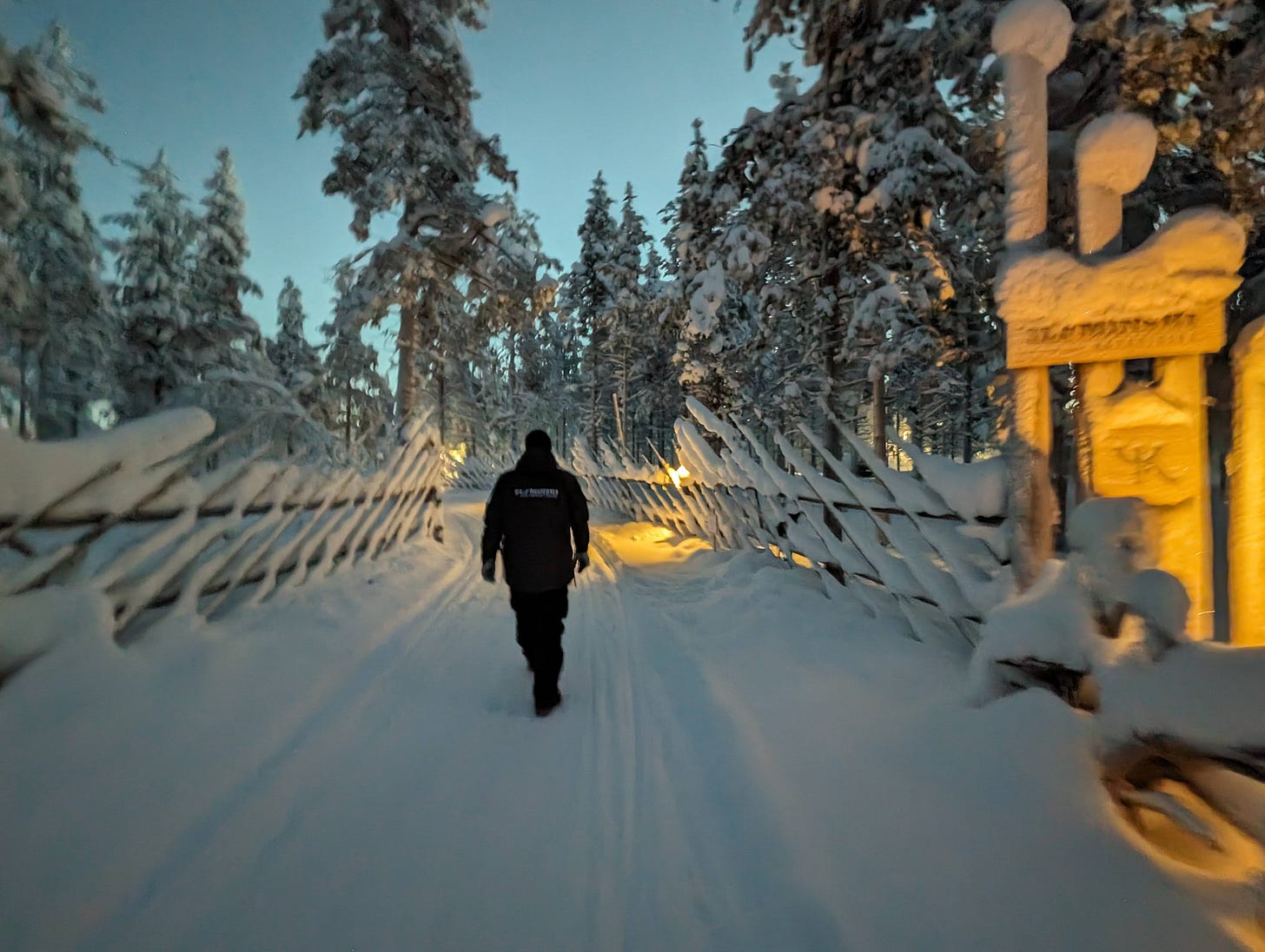The Power of Friendship
Nurturing Bonds for a Healthier, Happier Life
Friendship is essential for human well-being, fulfilling our need for connection and belonging. Friends offer companionship, sharing laughter and life's moments, reducing loneliness and providing a safe space for emotional support and understanding.

Friends are those that you (still) meet once work is over. They are different from family, because with family you have an even deeper relationship which can have all kind of positive and negative side effects. And family are typically those that you cannot easily break up with. Friends are those you have chosen to meet - after work, over the weekend, in your free time, due to shared interests, goals or mutual help and advise that you get.
They challenge us, offering new perspectives that contribute to personal growth and self-discovery. Research even shows strong friendships reduce stress and improve health.
While both family and friends offer love, friendships are based on choice, fostering a deeper sense of mutual understanding. They are often built on shared present experiences, creating camaraderie, and offer a more egalitarian dynamic than family roles. Friends provide objectivity that emotionally invested family might lack. Ultimately, friendship complements family, enriching our lives with unique benefits and nurturing our overall happiness.
Colleagues becoming friends
Over the past few years, I've realised how profoundly colleagues can become true friends. It's something I've witnessed over and over again. It starts with the shared context of work, of course, but the real connection happens outside the office. We'd meet up after work or on weekends—for cycling trips, hikes in the mountains, or even snowboarding in winter. While there’s a shared interest to begin with, it wasn't just about the activity itself; those moments created space for conversations that went far beyond spreadsheets and deadlines. We'd talk about our passions, our families, our hopes and fears.
These shared experiences, away from the work environment, forged bonds that transcended the professional realm. Interestingly, this also improved collaboration back at work. Knowing each other on a deeper level made communication smoother, and we developed a sense of camaraderie that made tackling projects together much more enjoyable.
What struck me most is how these activities led to genuine openness and vulnerability. You start letting people into your private life, sharing things you wouldn't normally discuss in a purely professional setting.
It can feel vulnerable, exposing a part of yourself, but I've come to believe that it's the only way we can truly find deep, meaningful friendships.
Be vulnerable.
Old friends turn into strangers again
It’s a fact of life that some friendships drift apart. I’ve experienced this myself, and it can be bittersweet. Sometimes, life simply pulls people in different directions. Relocating for work, pursuing new passions, or starting a family can significantly change priorities and create distance. Interests that once bonded us might fade, and suddenly, you find yourselves with less and less in common.
It’s easy to get caught up in nostalgia, reminiscing about “the good old days,” but I’ve learned that it’s healthier to accept this natural ebb and flow. Rather than dwelling on what was, it’s more fulfilling to invest energy in the relationships I have now, the people who are actively present in my life.
Of course, there are exceptions. If a friendship was particularly meaningful, and you genuinely care about maintaining it, it's perfectly okay to reach out, to remind your friend that you’re still there. Sometimes, a simple message or a phone call can rekindle a connection.
But if the distance feels mutual, and the effort isn't reciprocated, it's important to recognize that it’s okay for friendships to evolve, even if that means growing apart. It doesn’t diminish the value of what you once shared; it just means it's time to move forward.
Fostering Good Friendship
For me, fostering good friendships is all about creating shared experiences that go beyond the typical bar scene. While a casual coffee or drink can be fine occasionally, I find that focusing on activities that promote well-being, shared interests, and exploration leads to much deeper connections. I try to steer clear of situations that revolve solely around alcohol and sitting around; instead, I prioritize activities that encourage genuine communication and create lasting memories.
When it comes to outdoor activities, I love organizing cycling trips. It’s a fantastic way to explore new places, get some exercise, and have conversations along the way. Hiking is another great option—it’s often more inclusive for people of different fitness levels and provides a natural setting for open communication, with the added bonus of fresh air and beautiful scenery.
Indoors, I’m a big fan of sauna visits. In Germany, the sauna culture often involves nudity, which might seem daunting at first. But I’ve found that it creates a unique atmosphere of openness and vulnerability. Leaving behind the pretense of everyday life—literally shedding layers in the changing room—facilitates a more honest and direct form of communication. Some of my most meaningful conversations with close friends have taken place in the quiet warmth of a sauna. There’s a sense of shared vulnerability that fosters deeper connection.
More generally, I believe it’s important to step outside of your comfort zone from time to time. Trying something new with a friend — whether it’s a participating in a run for an open & diverse society, a podcast community meetup, or a visit to a sauna — creates a shared experience that strengthens your bond and provides a new memory to cherish.
These shared experiences, especially those that push us a little, are the building blocks of strong, lasting friendships.
IRL is King
Earlier this year I added a sentence to most of my social media profiles, like Mastodon, LinkedIn or Warpcast:
Hungry for new #experiences and genuine, human connections.
And I really mean it. I guess the experiences part is easy to understand, all my life I’ve been exploring and searching new things. The second part is about connections, real human connections. This is a reaction to all the (gen)AI content that we see in this digital world nowadays. At some point, we’re not quite sure any more if we are really dealing with real humans, are we?
I ultimately believe that proofing you are human, will become more important, but until tech like World with their Proof of Personhood (got your iris scanned?) are mass adopted, the only place we can guarantee true, real, authentic connections is IRL - in real life. And I would argue that meeting especially a friend in real life simply stimulates more senses, which results in deeper relationships and greater value for both.
And that’s why I am focussing on meeting my friends IRL - if possible…
Common Interests vs. Deep Friendship
While joint activities such as sports will undoubtedly foster strong friendships, it's important to acknowledge that friendships can vary in depth. Some may be based on shared interests, like hiking, while others may delve deeper, involving vulnerability and mutual support.
While a mix of both types of friendships can be fulfilling, I believe having at least one or two deeply connected friends can be particularly beneficial. These relationships, characterised by trust, openness, and shared experiences, can offer significant emotional support and personal growth.
In such friendships, the focus shifts from superficial interactions to genuine care and assistance.
Genuine care and assistance.
By actively participating in each other's challenges and celebrating shared successes, these bonds can strengthen and enrich our lives.
What’s your take on this?
Now it's your turn. I've shared my thoughts on friendship, but your experiences are just as valuable.
What qualities do you value most in a friend?
Have you experienced friendships drifting apart, and what did you learn?
What are your favorite ways to connect with friends?
Have you ever stepped outside your comfort zone together?




